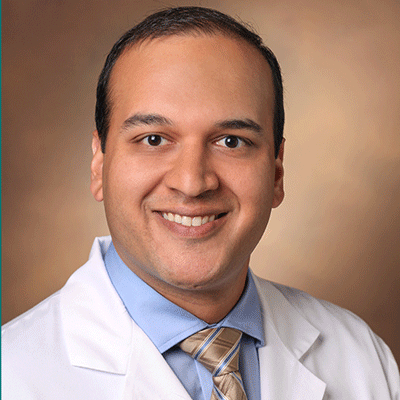When other therapies have not helped manage your reflux symptoms, it may be time to consider surgical treatment for GERD.
If you’ve been living with gastroesophageal reflux disease, you’ve likely turned to treatments like lifestyle changes (diet and exercise) and medication (antacids, H2 blockers or proton pump inhibitors) to manage your symptoms. If these therapies have been unsuccessful, your doctor may have asked if you’d be open to surgery. There are different GERD surgery options, including fundoplication and magnetic sphincter augmentation, also known as LINX.
But what exactly do these procedures entail? How do you know if you’re a good candidate? And what are the risks? We asked Chetan Aher, M.D., a general surgeon with Vanderbilt Health, to share his expertise.
What is anti-reflux surgery?
“If you have GERD, you may have a weak lower esophageal sphincter,” Aher said. “The LES is a muscular ring that opens and closes at the top of the stomach to keep food and fluid from flowing backward. During fundoplication, the LES is restructured. We wrap the very top of your stomach around the lower part of your esophagus, and permanently stitch it into place. During magnetic sphincter augmentation, we use a device called LINX, which is a small bracelet of magnets, to strengthen the LES.”
What’s the GERD surgery procedure like?
“These surgeries are almost always done via laparoscopy, which means the surgeon makes five small incisions in your abdomen and inserts a lighted tube called a laparoscope into one of the incisions, and tiny tools in the others,” Aher said. “The procedures are minimally invasive and usually require a one night stay in the hospital. Most patients go back to work within two weeks.”
What are the risks of surgery for GERD?
Before any surgery, it’s important to be aware of the complications. For fundoplication and magnetic sphincter augmentation, the risks include:
- Injury to the liver, spleen, esophagus or stomach
- Infection
- Increased gas or bloating
- Bleeding
- Not able to vomit
- Trouble swallowing
“Many patients get excellent reflux relief from surgery, but some patients still require medication, either right after surgery or in the long term,” Aher said. “Your surgeon will be able to give you a detailed idea of expected outcomes, depending on your own situation as well as the operation you choose.”
Who is a good candidate for the anti-reflux surgery?
“Patients on anti-reflux medications who are still making lifestyle modifications are good candidates for surgery,” Aher said. “Additionally, patients who experience side effects from their medication or get some, but not complete, relief of their symptoms can benefit.”

The newest treatment for reflux uses LINX, a ring of magnetic beads, in a minimally invasive surgery. LINX is customized to fit your anatomy and provide you the best possible relief from reflux.


